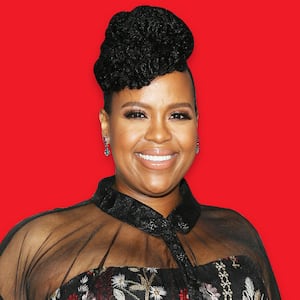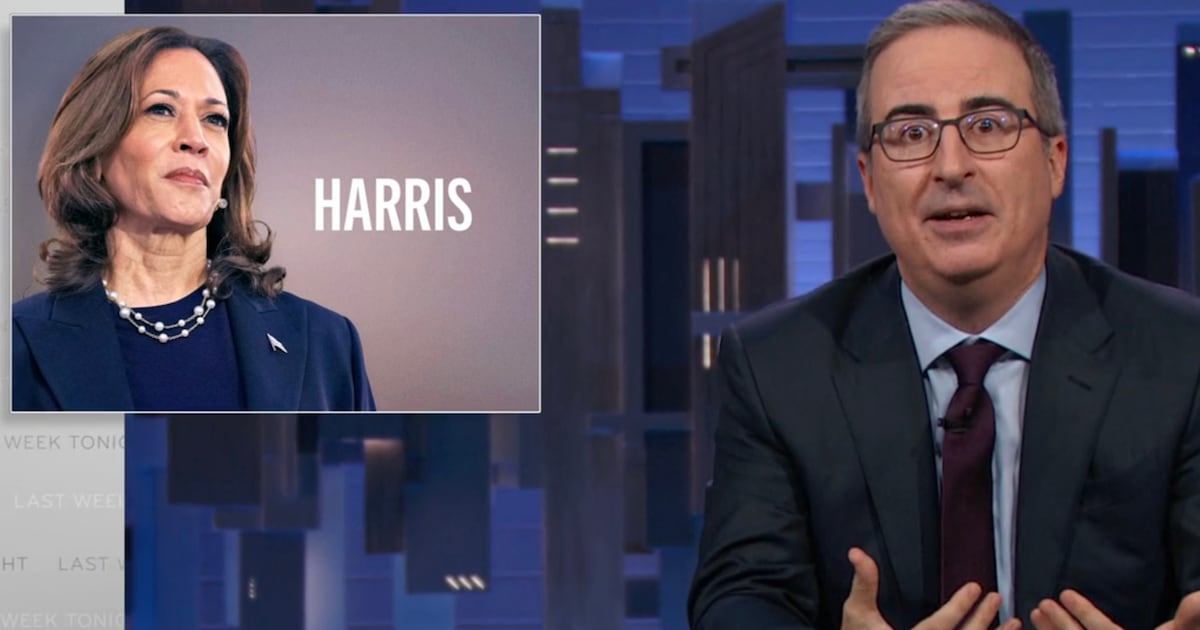Depending on who you are, Sunday night’s finale of Insecure was either a fairy tale or a nightmare—so it may have been perfect for the series, a show about a group of Black female friends whose choices we couldn’t look away from, relished in by proxy, and, often, were infuriated by. It’s a series that wasn’t just entertaining; it was relatable, and sometimes unbearably real.
I can’t believe how Issa, the character created by and brought to life by Issa Rae, ended up. I was jealous of her. I was frustrated with her. Most of all, I was happy for her. Which is to say, after these five seasons together, I think of Issa the same way I think of my closest friends.
The final episode of the groundbreaking HBO comedy, its first comedy to follow in the path of Sex and the City and Girls and center the relationships of a group of female friends around the Black experience, began moments after the drama of the episode before it: Issa’s ex, Lawrence (Jay Ellis), and current boyfriend, Nathan (Kendrick Sampson), almost come to blows at a party.
ADVERTISEMENT
It’s an atom bomb dropped into what had seemed like, finally, bliss for Issa. She appeared happy. She was successful in her professional life and, with Nathan, about to settle in her personal life. This fight was catastrophic. In the first moments of the episode, Nathan leaves her. (The few beats of them just sitting in silence in the car together, afraid to address the inevitable, was achingly familiar. This is a show that is unrivaled in not just capturing the euphoria of life’s highs, but the pain of its lows.)
The breakup is the catalyst to, once again, address the central question of the series—one that’s both evolved as we’ve watched its characters grow but has also remained fundamentally the same.
It’s not just, “Can we be happy?” but, “What does it even mean to be happy?” What that looks like changes. What we want that to look like changes. But the wanting it? No matter how many times we’re knocked down or disappointed or even think we’ve achieved it in some respect, the desire for it is the thing that never goes away. Insecure has always been about that striving. And that can be, well, messy as fuck.
“I just want to fast forward to the part of my life where everything’s OK,” Issa tells herself in the mirror, speaking to that sage-and-sassy fantasy version of her psyche that’s always been one of Insecure’s greatest plot devices. It’s the therapy that we almost never do: Therapy with one’s self.
And so it’s telling that, after Issa says that line—speaking into the world that universal feeling—Mirror Issa can’t even keep a straight face. She cracks a joke and laughs. Issa knows—the show knows, we know—that in order to get what you need from life, you have to work through and feel through all of it, the bad parts especially.
The episode follows through on the promise Issa, Molly (Yvonne Orji), Kelli (Natasha Rothwell), and Tiffany (Amanda Seales) make to each other when Tiffany and her family move from Los Angeles to Colorado: Things get busier and more difficult as you get older, and friendships can get pushed down the list of priorities. At the very least, they will see each other on their birthdays.
So over the course of the episode, we see them get together. We see how they’ve changed. We see how that idea of happiness has evolved—the unexpected, yet blissful satisfaction when they’ve gotten what they’ve needed, even if they didn’t know they wanted it; the inescapable sadness when that is still out of reach, but the enlightenment to still walk through life in spite of it.
At Molly’s birthday, she and Issa are having a quick heart-to-heart and she clocks her. “Are you still…” she asks Issa, who finishes the sentence for her. “A mess?” Old Issa wouldn’t even have been able to articulate that. Now, she’s allowing herself to feel and work through it.
At Issa’s birthday, which takes place a few months later, Nathan stops by to see her. It’s not combative at all. It’s not pleasant, sure, but it is nice in a way that makes sense when there’s a person who has made an undeniable and unremovable impression on your heart and your life—even if sadness is involved.
“I always thought that people come into your life for a reason,” Issa tells Nathan. “You have made up so many good reasons for me. And I hope that I did the same for you. Because I don’t want you to regret anything.” It’s possibly the best thing I’ve ever heard about relationships in a television series, and it’s about one that didn’t work out.
That’s the thing that this show has instilled in us, which we had been either too naive or too scared to realize: More things don’t work out in life than do, and that’s not failure. That’s just what going through life is. We do a disservice to ourselves when we don’t validate and appreciate those things—and not as failures, but as wins, because they’re things that we experienced, that meant something, and that changed who we are.
Issa is overwhelmed at her birthday. There’s a certain audacity to letting yourself feel loved, and she’s grappling with that. It’s that thing where it’s impossible to dissociate from your life when you want to celebrate, to forget about your anxieties and your depression and all the wishes you have that are still unfulfilled. Celebrations only heighten and draw into focus the things you’re not happy with. In some respect, that’s why they’re important—and why this was such a clever structure to skip through time and show us what happens to these characters.
It’s a whole finale about how birthdays are terrible, but still important. Company is shook.
The fairy tale of the Insecure finale is that no one gets a storybook happy ending, but they’re still OK. For as real as this show has always been, maybe that’s a little bit of fiction. But this is a TV show about what we need from life, and, especially right now, we as viewers need that from it.
Molly gets the most traditional happy ending of all. She marries Taurean (Leonard Robinson), and it’s beautiful—perfect, even, except for the fact that her mother isn’t there to see it. More importantly, she and Issa are also still best friends, as close as they’ve ever been.
When she says thank you to Issa for “being you” and for “loving me while I was me,” it becomes clearer than it’s ever been that this is the show’s love story. Imagine having a life partner who sees you for every complicated and possibly even terrible piece of who you are, and finds that being worth unconditional love.
And that leads us to Issa.
I know people are going to hate the fact that she ends up back with Lawrence.
I saw people saying on social media that the only authentic ending to Insecure would be that all of these women end up alone. Maybe that would have been a nice message to send: being alone doesn’t have to mean loneliness, and can actually be a person’s preferred existence.

Lawrence (Jay Ellis) in the series finale of Insecure
Merie Weismiller Wallace/HBOMaybe, too, Issa getting back together with her former fiancée like a narrative bookend is too cliché for a series like this. I find it believable in the sense that, while we’ve spent five years projecting our own scenarios and feelings on Issa as an avatar for what it’s been like for all of us to get older and move through life, this show has painted a clear picture of Issa as an individual. This isn’t an ending that was obvious or that makes sense for everyone. But it sure makes sense for her.
People grow at different speeds, and that was always the issue that made Issa and Lawrence never work. But time is a thing we never allow for. What if time allows that growth to happen at its own pace, and then allows for people to come together again when they’re ready? Maybe that’s a bit of a fairy tale, too. (Again, this is a TV show.) But it’s nice to see life work out that way: the way that it should, but we’re often too impatient to let happen.
The finale played heavily into the romantic notion of the person you used to love—or, maybe more accurately, who used to love you. But it also spent enough time exploring what it’s like to be a person who is a mess trying to clean themselves up that this notion doesn’t come off as toxic, but healing and healthy.
It confronted us with the idea that heroines and protagonists—or, in life, the people that you love—don’t always end up with what we prescribe to be happy endings in the traditional sense. But all we can hope for and appreciate is that it’s happy for them. That’s what we see in the final moments of the episode when Issa looks into the mirror once more.
Maybe that’s the idea this narrative device has been playing with all along: the impossibility of seeing yourself for who you really are, right now at this very moment—and how glorious it must be when you finally do.






